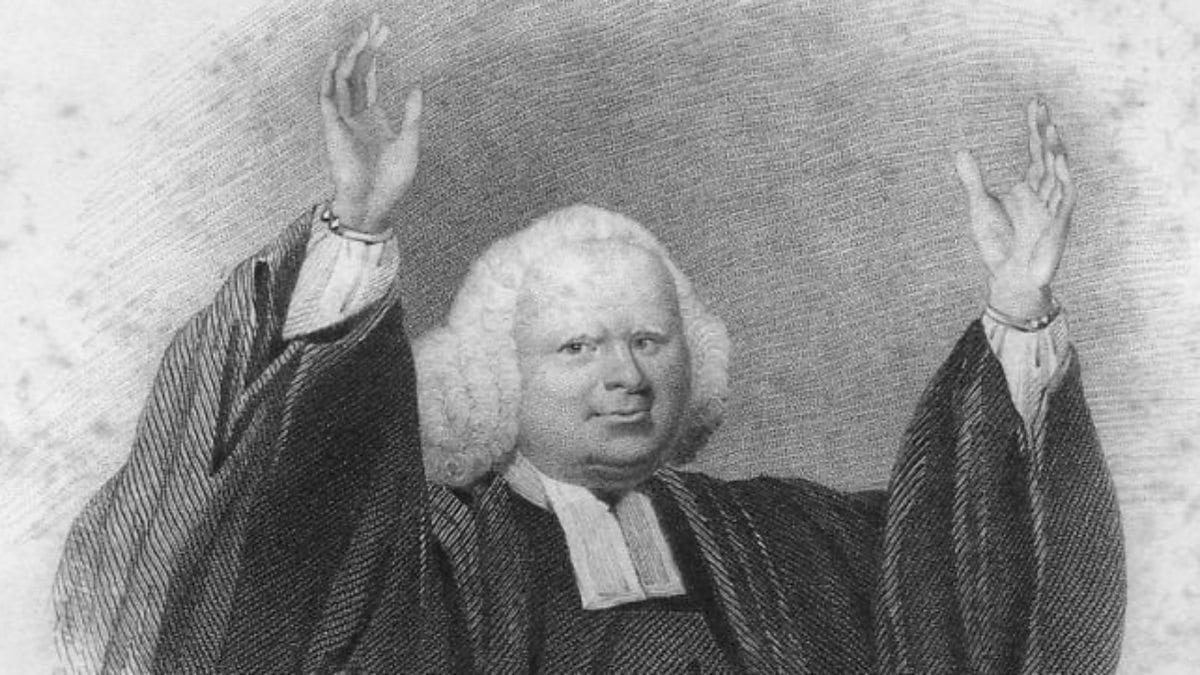Brief Look at the Historical Events of George Whitefield
George Whitefield was perhaps the most influential religious figure of the 18th century. In his lifetime, he preached at least 18,000 times to perhaps 10 million hearers.
In 1715, in Gloucester, England; George Whitefield was born. He studied at Pembroke College one of Oxford’s renowned colleges in 1734.
At this College, he became motivated when he met the founder of Methodism-John Wesley and Charles Wesley. Furthermore, this changed Mr. Whitefield’s life until the end of his death in 1770.
In 1737, the Church of England ordained George Whitefield as a preaching deacon. He had a desire to preach to all people, instead of focusing on one group of individuals such as he was with the Anglicans, George Whitefield chose to be successful not just in the pulpit but all across England. As a preacher he was more focused on preaching a thriving heart felt message than recognizing the denominations that the audiences portrayed.
His focus was on preaching free grace and with his whole heart believed that all could be born again.
In 1770, Mr. Whitefield passed away from asthma in Newburyport, Massachusetts.
Theological Dilemma of Calvinism vs. Arminianism
Over the year and a half span, George Whitefield taught around America. All denominations across America soon followed Mr. Whitefield in his approach of creative preaching.
In order to dramatize his sermons, he would select different scriptures in the Bible that would establish each background that would set the scene.
Theologically, Mr. Whitefield started out as an Anglican preacher, but in 1739-1740 his stance on free grace and predestination leaned more towards Calvinism. He wavered between his Anglican denomination and the Calvinistic view he now held. Yet, through the wavering, his main emphasize was to uphold grace, justification by faith, and regenerate against the “salvation of works”.
The doctrines that sold him towards Calvinism comprised of final perseverance and election. His main concern was focusing on the blood that was shed for his sins by his Savior Jesus Christ.
Theologically, it seems as if George Whitefield was not caught up in doctrinal expositions, but to excite the crowd and rile them up. George Whitefield taught from criteria of passion, delivery of speech, and very much dramatized scripture.
His focus was on saving everyone from his or her sins.
The Impact of the Greatest Evangelist
In 1748, he planned to connect with the Countess of Huntingdon’s to awaken the Church of England. Though John Wesley and him were friends, George Whitefield did not trust the Arminianism belief that Mr. Wesley held as well as his perfectionism. He was a preacher who taught from the heart and not the books!
George Whitefield approached the people of God by testifying that many have corrupted the Holy Bible.
Preaching from Jeremiah his focus was out of concern for the people to repent and turn from their wicked ways. Mr. Whitefield wanted the people to hear his message to understand the convictions of good and bad. His view on the doctrine of election was very optimistic and understood it as a mystery of God.
He believed that we were only made righteous by Christ, and not ourselves and believed that man was made in God’s own image.
George Whitefield understood that faith was not based off of works but by justification. Even though he believes works alone will not get you to heaven, he does believe in the perseverance of holiness.
Submitting to the Lord instead of the law, his focus is to reject the old ways of righteousness and focus on Christ being the only one who clothes all unto righteousness.

Dear pastor, can you please help me with some of George withfell bible teaching.